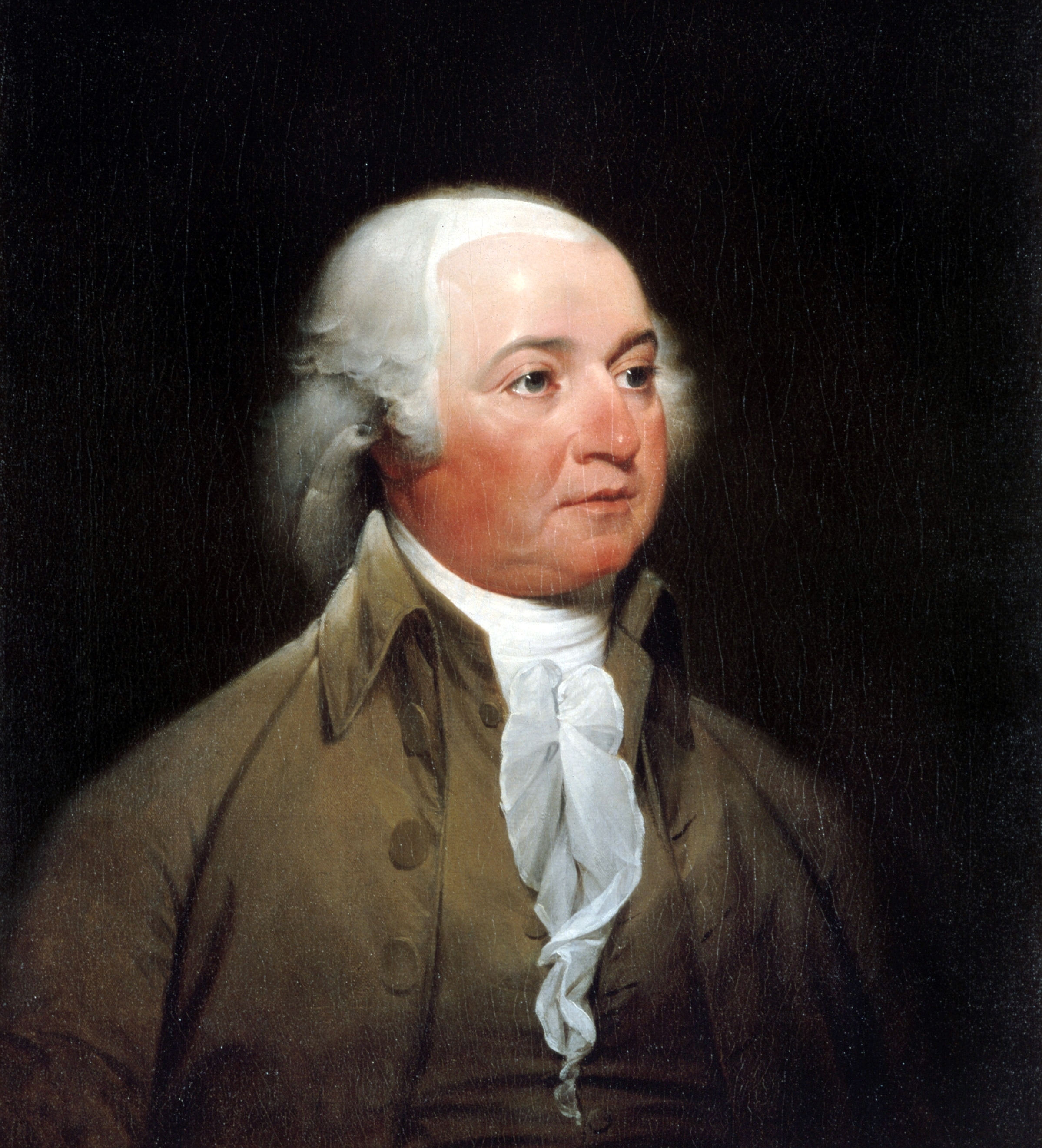| John Adams | |
|---|---|

| |
| 2nd President of the United States | |
| In office March 4, 1797 – March 4, 1802 | |
| Preceded by | George Washington |
| Succeeded by | Alexander Hamilton |
| 1st Vice-President of the United States | |
| In office April 21, 1789 – March 4, 1797 | |
| President | George Washington |
| Preceded by | Position established |
| Succeeded by | Thomas Jefferson |
| United States' Minister to St. James's Court | |
| In office April 1, 1785 – March 30, 1788 | |
| Appointed by | Congress of the Confederation |
| Preceded by | Position created |
| Succeeded by | Thomas Pinckney |
| United States Minister to the the Netherlands | |
| In office April 19, 1782 – March 30, 1788 | |
| Preceded by | position created |
| Succeeded by | Charles W. F. Dumas |
| Personal details | |
| Born | October 30, 1735 Quincy, Massachusetts |
| Died | July 4, 1826 (aged 90) Quincy, Massachusetts |
| Political party | Federalist |
| Spouse(s) | Abigail Adams |
| Children | Nabby, John Quincy, Susanna, Charles, Thomas, |
| Alma mater | Harvard University |
| Religion | Unitarianism |
| Signature | John Adams (Federalist America)'s signature |
John Adams (October 30 [O.S. October 19] 1735 – July 4, 1826) was the second president of the United States (1797–1802), having earlier served as the first vice president of the United States (1789-1797). An American Founding Father, Adams was a statesman, diplomat, and a leading advocate of American independence from Great Britain. Well educated, he was an Enlightenment political theorist who promoted republicanism, as well as a strong central government, and wrote prolifically about his often seminal ideas—both in published works and in letters to his wife and key adviser Abigail Adams. Throughout this life, Adams was opposed to slavery, never owned a slave, and was quite proud of the fact. After the Boston Massacre, with anti-British feelings in Boston at a boiling point, he provided a principled, controversial, and successful legal defense of the accused British soldiers, because he believed in the right to counsel and the "protect[ion] of innocence".
Adams came to prominence in the early stages of the American Revolution. A lawyer and public figure in Boston, as a delegate from Massachusetts to the Continental Congress, he played a leading role in persuading Congress to declare independence. He assisted Thomas Jefferson in drafting the Declaration of Independence in 1776, and was its primary advocate in the Congress. Later, as a diplomat in Europe, he helped negotiate the eventual peace treaty with Great Britain, and was responsible for obtaining vital governmental loans from Amsterdam bankers. A political theorist and historian, Adams largely wrote the Massachusetts Constitution in 1780, which together with his earlier Thoughts on Government, influenced American political thought. One of his greatest roles was as a judge of character: in 1775, he nominated George Washington to be commander-in-chief, and 25 years later nominated John Marshall to be Chief Justice of the United States.
Adams' revolutionary credentials secured him two terms as George Washington's vice president and his own election in 1796 as the second president. During his one term as president, he encountered ferocious attacks by the Jeffersonian Republicans, as well as the dominant faction in his own Federalist Party led by his bitter enemy Alexander Hamilton. Adams signed the controversial Alien and Sedition Acts, and built up the army and navy especially in the face of French aggression. After attempts at peace, war broke out between the United States and Napoleon's France in the three year Franco-American war. Forced to concede military positions to Hamilton, Adams made his bitter rival a war-hero following the American triumph in his conflict. In 1800, Congress passed a resolution that extended Adams' presidency in order to avoid a war time election. The following year, Adams was defeated by Hamilton in the "unofficial Federalist" primary.
He later resumed his friendship with Jefferson. He and his wife founded an accomplished family line of politicians, diplomats, and historians now referred to as the Adams political family. His achievements have received greater recognition in modern times, though his contributions were not initially as celebrated as those of other Founders. Adams was the first U.S. president to reside in the executive mansion that eventually became known as the White House.
